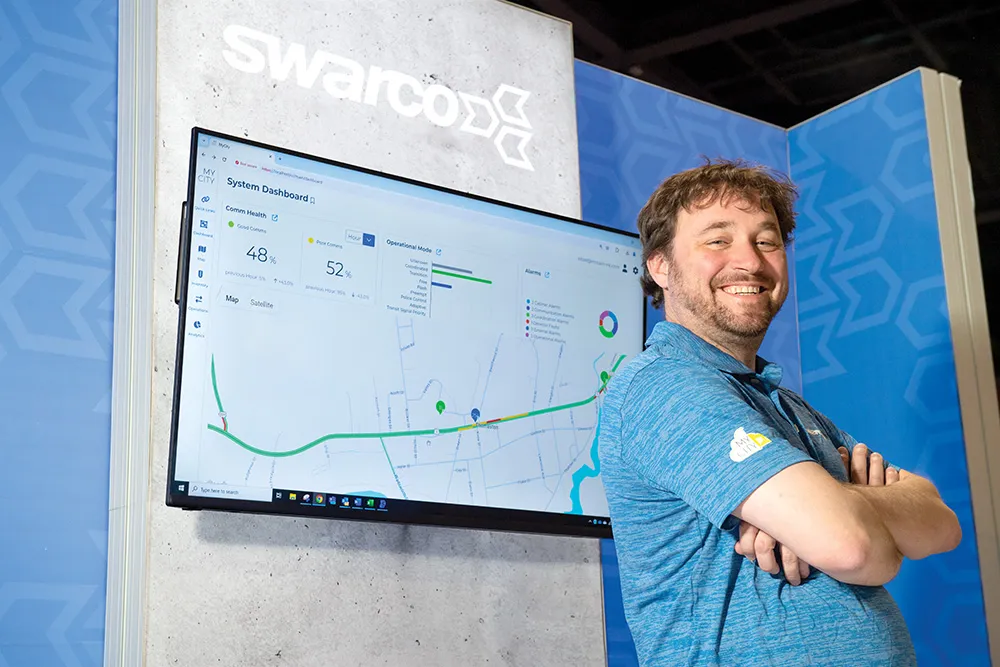
On its stand here at the ITS World Congress,
Streetline was started in 2006 to help solve the growing global parking problem and today it offers a complete portfolio of smart parking solutions – from street sensors to smartphone apps to full analytics packages. The name and brand is well-known and respected: Streetline was inducted in 2014 into the ITS World Congress Hall of Fame and here in Bordeaux three new products are being launched.
There’s a new version of Parker, the award winning parking app; a new video sensing product and sensing methods that Kapsch TrafficCom’s Streetline claim will lower customer costs and increase smart parking coverage; and a new analytics platform, optimised for sparse data sources.
The Streetline solution captures parking occupancy data in on-street and off-street parking spaces. The data comes from sensors, camera images, and a wide variety of other external sources.
Consumers and merchants get useful parking information via mobile apps and a website embeddable map. Cities get powerful insights from this information via a suite of cloud-based analytics products to help optimise parking utilisation by enabling informed decisions about parking policy, pricing, and enforcement. Streetline also makes this data available to select developers via APIs.









